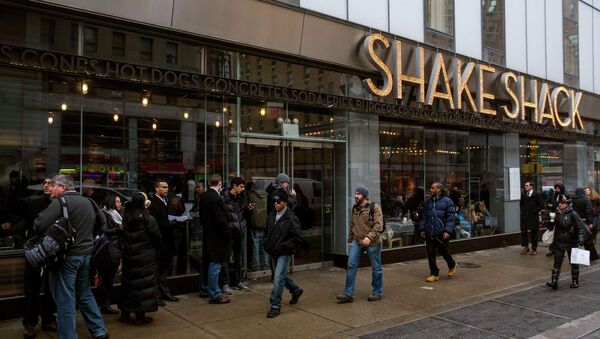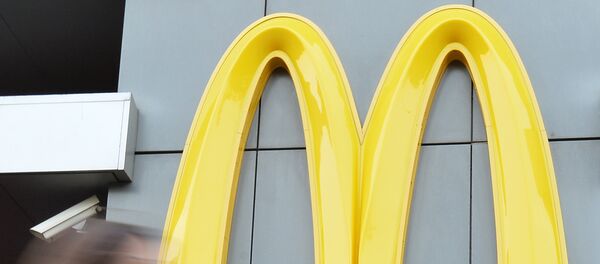Shake Shack is “a stock-market darling for the way it has self-promoted and grown,” the Washington Post writes, despite its food being pricey, and likely no healthier than its cheaper rivals. The company “has made deliberate slowness into a corporate virtue, knowing that becoming mainstream too quickly could hurt its underdog charm; signs in executives' offices say, "The bigger we get, the smaller we need to act."
On Friday shares in Shake Shack, valued initially in its public offering at $21, opened at $47.21 and at one point soared to $49.15 before settling to $45.90 at close of trade. With just 63 outlets, its market cap values each eatery at about $26 million each.
Shake Shack founder Danny Meyer, who began the business as a hot dog cart in 2001 in New York's Madison Square Park, maintains a 21 percent stake in the company which is now valued at $341.5 million. When asked by CNBC if the valuation put pressure on the company, Meyer replied, "We cook one burger at a time with one smile at a time, and I don't know how you value that."
2014 was one of the worst years on record for McDonald's, whose net income last year fell almost 15 percent to $4.76 billion. In December, the chain announced sales in November were down by 2.2 percent year on year, while the fall in the US was 4.6 percent. “To restore momentum, McDonald's U.S. is diligently working to enhance its marketing, simplify the menu, and implement a more locally-driven organizational structure to increase relevance with consumers,” said the company in a statement accompanying the figures.
However, experts at CNBC warned that the IPO process may have distorted the true value of Shake Shack, since so-called “flipper” investors hold short-term share positions, selling the stock as soon as it prices. “They are the enemies of those who like the Shake Shack so much they bought a piece of it," said Jim Cramer, the presenter of the network's Mad Money program, adding that flippers need to “weed out of the stock, so it can stabilize.”
The Post also sounded a cautious note, and warned that Shake Shack now faces the challenge of maintaining its “slow-growing zen in the face of profit-minded shareholders,” which “will be a key tension for its next few years on Wall Street.” The paper also points out that the company, which has plans to expand from 2015 at a rate of ten stores per year, needed the first nine months of 2014 to make the revenue that McDonald's takes in one day.



